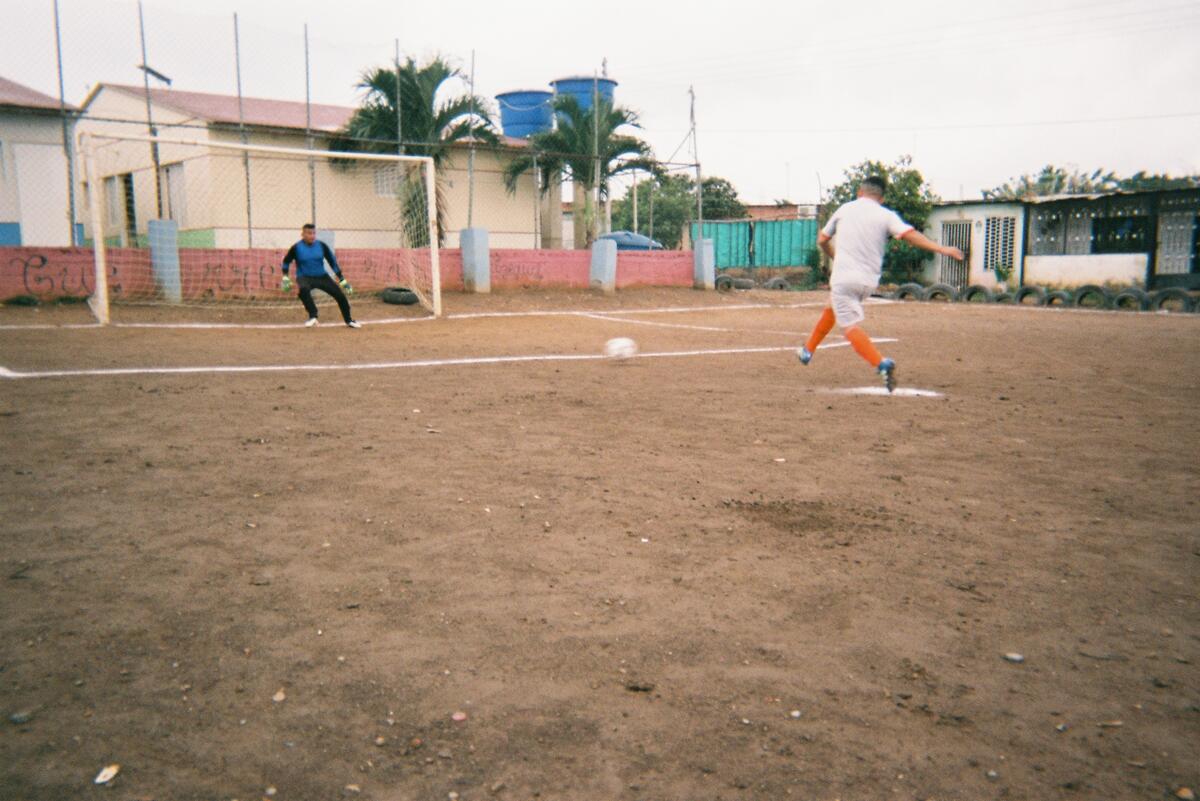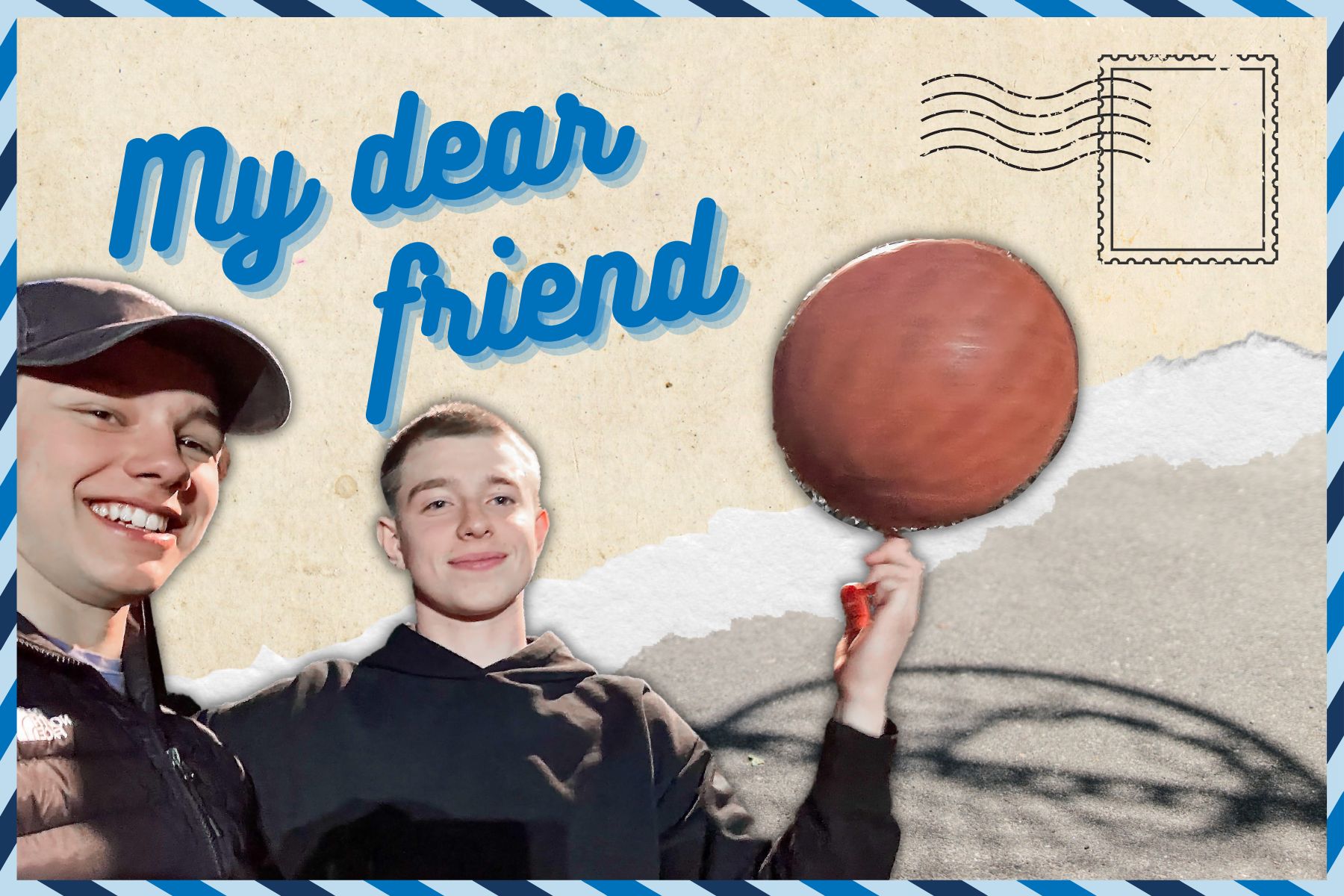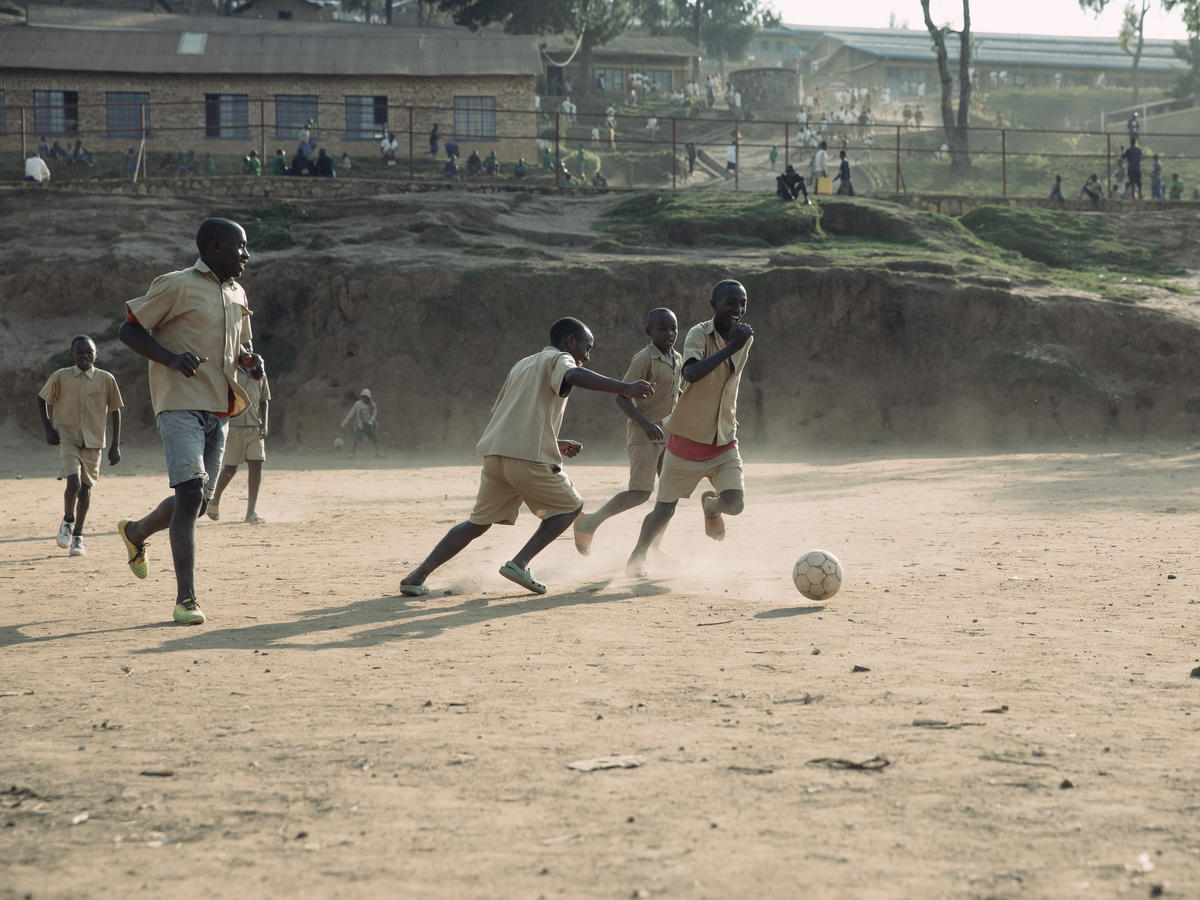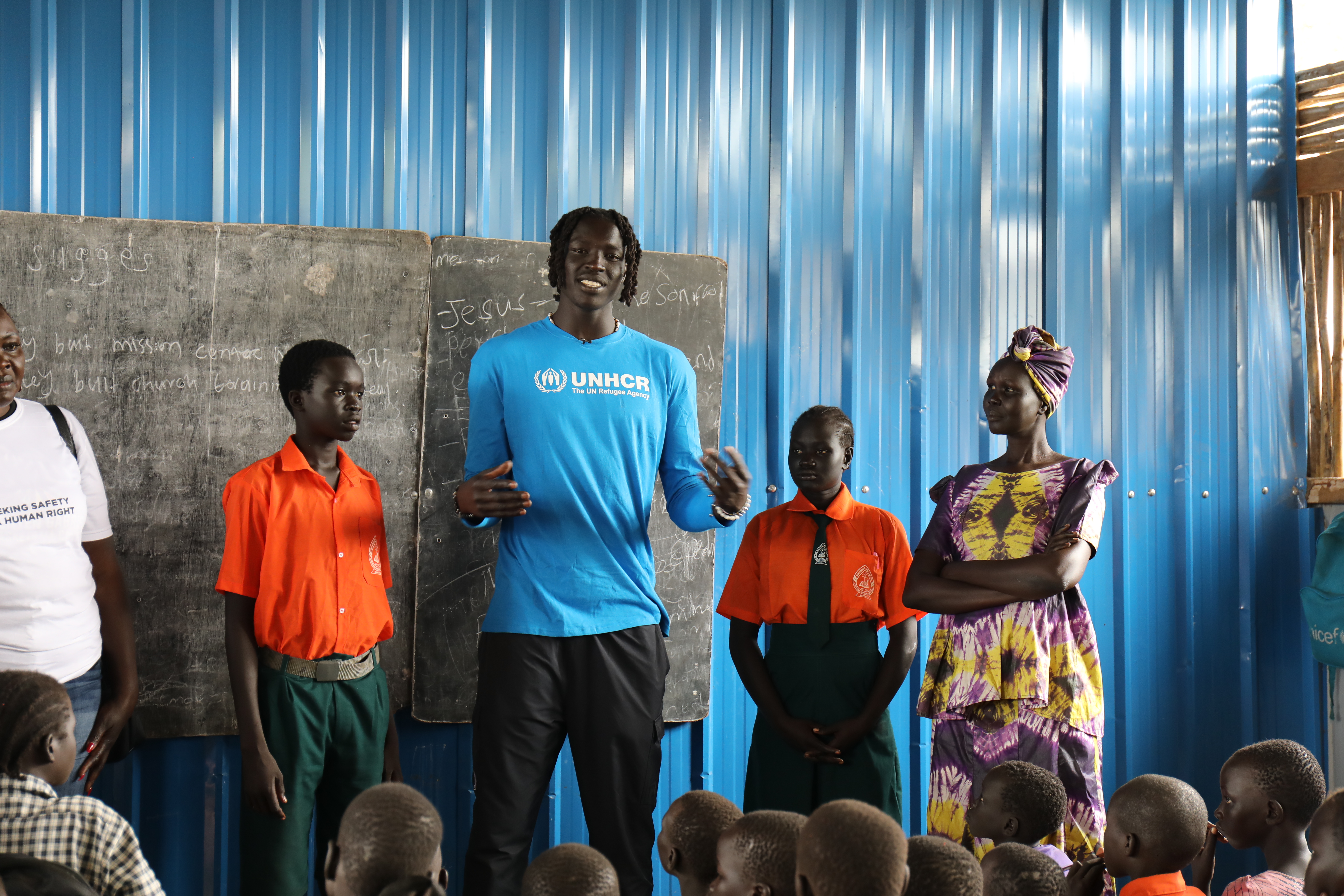Olympic spirit gives hope to refugees
Olympic spirit gives hope to refugees

LONDON, United Kingdom, July 27 (UNHCR) - As thousands of athletes and spectators from 205 countries around the world gather in London today for the opening ceremony of the 2012 Olympic Games, UNHCR is preparing for an Olympics that will have a lasting legacy for refugees.
The UN refugee agency has partnered with the International Olympic Committee (IOC) for the third time to launch "Giving is Winning", an initiative that aims to break previous records by collecting 100,000 items of new sports clothing donated by athletes, including the Team GB sportswear designed by Stella McCartney. A group of dedicated volunteers will be sorting and packing the clothes before they are shipped to refugee camps in South Sudan, Ethiopia and Bangladesh.
Speaking at the launch of the campaign at the Olympic Village this week, UNHCR Representative to the UK, Roland Schilling, said, "The clothes will not take away the pains of a refugee who has lost their home and loved ones. But to receive direct and personal donations by the world's best athletes, who are here gathered in London, is a signal that you care for them and they are not forgotten. Your support will give them hope."
Addressing his fellow athletes at the "Giving is Winning" launch, Namibian Olympic medallist and IOC member Frankie Fredericks said, "For the young people in refugee camps, a T-shirt, a baseball cap or a ball represent a few moments of joy in a life that has little hope remaining. Sport has given a lot to all of us. It's now our turn to be able to give a little back by making such a donation."
For some of the Olympians taking part in the world's biggest sporting event, the donation of clothing to refugee camps has particular meaning. Basketball player Luol Deng fled Sudan at an early age, living in a refugee camp in Egypt before seeking sanctuary in the UK. Deng is now a star basketball player for the Chicago Bulls and Team GB's best-paid athlete. Lopez Lomong was also born in Sudan, one of the Lost Boys who fled at just 16 years of age. Now an American 5,000 metre track-and-field star, Lomong was also the US flag bearer in the 2008 Games. Internally displaced runner Elkin Serna won Colombia's first-ever silver medal in the 2008 Beijing Games and will be competing in the 2012 Paralympics long-distance events.
In fact, Olympic history is interwoven with refugee stories. Walter Herz, a Czech refugee who fled Europe during World War II, designed the famous official poster for the 1948 Olympic Games held in London. And it was the Jewish refugee Ludwig Guttman, who had fled Nazi Germany, who held the first-ever sporting event for disabled people in Buckinghamshire, England in 1948, that would later become the Paralympics. In 1956 he was awarded the Fearnley Cup, an award for outstanding contribution to the Olympic ideal.
Refugees are also making a huge behind-the-scenes contribution to the staging of the London 2012 Games. Zimbabwean refugee Cynthia Masiyiwa helped 60 young people secure jobs at the Olympics and successfully campaigned to ensure workers at the Games would get the London living wage. Former refugee Téa Hodzic was a successful musician in Bosnia and Herzegovina before she escaped the war in the early 1990s. Since then, she has impressively rebuilt her career in the UK and will be performing this evening in the Olympic stadium.
Also attending tonight's opening ceremony will be UN High Commissioner for Refugees António Guterres, who urged Olympians to support the "Giving is Winning" campaign: "For many young refugees the gift of sportswear associated with famous athletes from across the Olympic spectrum is a tremendous morale booster - a sign that the outside world does still care."
By Laura Padoan in London








